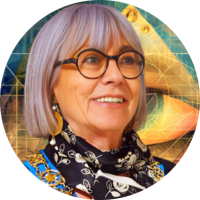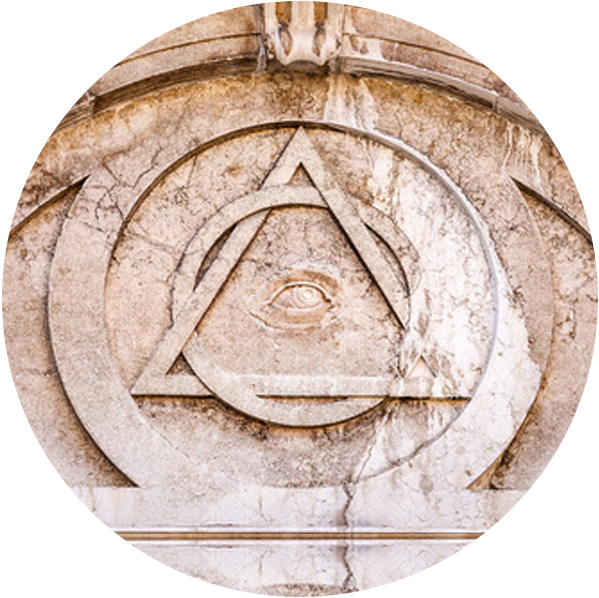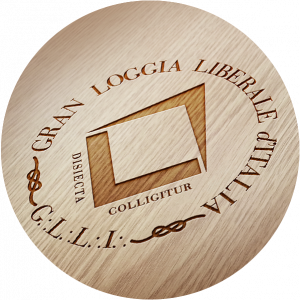Benvenuti nel sito ufficiale della Gran Loggia Liberale d’Italia,
associazione di logge massoniche fondata il 27 dicembre 2018

Chi siamo
La Gran Loggia Liberale d’Italia nasce dalla volontà di 15 Logge massoniche fondatrici , tutte composte da Fratelli e Sorelle di lunga esperienza massonica. Convinte assertrici della parità tra i generi e animate dallo spirito di libertà, le Logge fondatrici hanno deciso di dare vita ad una obbedienza massonica che, pur nel rispetto dei valori della Tradizione, sia adeguata ai tempi e proiettata verso il futuro.
L’intento è quello di praticare i primi tre gradi della Massoneria Simbolica, Apprendista, Compagno e Maestro Libero Muratore, riscoprendo i più puri valori morali e spirituali della pratica rituale, studiandone la storia, l’evoluzione e i significati, affinché questi siano di insegnamento per la vita di tutti giorni, nella speranza di meglio contribuire al progresso della società.
Le logge della Gran Loggia Liberale d’Italia fondano i loro valori sui principi fondamentali di Libertà, Uguaglianza e Fratellanza, che si estrinsecano in :
- Assoluta libertà di coscienza e rispetto delle regole democratiche
- Uguaglianza nei diritti di tutti gli esseri umani
- Reciproca comprensione, rispetto e solidarietà tra tutti gli esseri umani
Pur non interessandosi di politica e di religione, le Logge della Gran Loggia Liberale d’Italia onorano la Patria, rispettano i valori della Costituzione della Repubblica Italiana, e si conformano in pieno alle Leggi dello Stato; rispettano ogni religione e chi la pratica, e accettano tra le loro fila uomini e donne di ogni fede religiosa, rifiutando ogni forma di fanatismo e discriminazione.
Dal 20 maggio 2023 la Gran Loggia Liberale d’Italia è membro del C.L.I.P.S.A.S. (Centre de Liaison et d’Information des Puissances maçonniques Signataires de l’Appel de Strasbourg)
Clicca qui per leggere la Costituzione della Gran Loggia Liberale d’Italia
Il nuovo Gran Maestro della Gran Loggia Liberale d’Italia è la sorella Luisa Ceravolo.
Formazione umanistica (Lettere Antiche), carriera professionale nell’area commerciale di una multinazionale americana del settore informatico e poi come consulente in un’area applicativa relativa a flussi e organizzazione aziendale…..
La Gran Loggia Liberale d’Italia è una comunità di logge massoniche, regolarmente costituite secondo la Tradizione, che accolgono uomini e donne e operano nei primi tre gradi della Libera Muratoria simbolica: Apprendista, Compagno e Maestro Libero Muratore.
La Giunta Esecutiva è costituita dai Grandi Dignitari e alcuni dei Grandi Ufficiali della Gran Loggia Liberale.
“Siamo sempre alla ricerca di qualcosa che ci completi…
per evolvere nel dubbio, per conoscerci nell’esperienza
e nella vita di fratellanza”.

Dove siamoLe nostre logge
La sede centrale della GLLI è a Torino in via Carlo Alberto, 55. Siamo presenti nelle seguenti località italiane ed estere:
La storia della massoneria in breve
La Massoneria è una “disciplina esoterica”, nel senso che alcuni aspetti della sua attività interna non sono di dominio pubblico, ma coperti da riservatezza. I membri della Massoneria (i Massoni) sono chiamati anche frammassoni, forma italianizzata del francese franc-maçon (freemason in lingua inglese), cioè «libero muratore». Il nome deriva dalla pretesa discendenza della Massoneria dall’associazione di operai e muratori che si rifà alla leggenda di Hiram, architetto del Tempio di Salomone.
La Massoneria è nata come associazione di mutuo soccorso e perfezionamento morale tra artigiani muratori, mentre in seguito adottò l’attuale veste speculativa, trasformandosi in una confraternita di tipo iniziatico caratterizzata dal segreto rituale, con un’organizzazione mondiale.
I suoi affiliati condividono gli stessi ideali di natura sia morale sia metafisica e la comune credenza in un Essere supremo, chiamato Grande Architetto dell’Universo.
Non è facile ricostruire, in termini storicamente incontrovertibili, la nascita della Massoneria come fenomeno concretamente documentabile e per questo alcuni sono arrivati a concludere che le sue vere origini si perdono nella storia.
Le radici della Massoneria vengono fatte risalire tradizionalmente – da parte dei suoi membri – alla costruzione del Tempio di Salomone (il Tempio Interiore o Tempio Esoterico) ed alla leggenda di Hiram Abiff. Secondo la Bibbia, Hiram venne inviato dal re di Tiro a Salomone, per aiutarlo nella costruzione del Tempio. Nella leggenda Massonica il geniale artigiano diviene invece l’architetto del Tempio, preposto alla direzione di tutti i lavori e di tutti gli operai. Il racconto ha una sua chiave d’interpretazione mistica e rinvia ai concetti di Perfezione, meta della ricerca mistica, e di Grande Opera (l’opera del Grande Architetto costruttore del mondo), attraverso la cui comprensione avviene l’ingresso del sacro nel profano. La Massoneria simbolica si fonda su questa visione mistica e perciò avrebbe esclusivamente a che fare con un cammino spirituale.

Come diventare Massoni
Recitano gli Antichi Statuti:
“Quella unione di uomini saggi e virtuosi, che con allegorico significato si appella ordinariamente Società dei Liberi Muratori è stata in ogni tempo considerata come il santuario dei buoni costumi, la scuola della virtù, il tempio della filosofia,…
Ha per fine il perfezionamento del cuore umano e si propone, qual mezzo necessario per ottenere questo fine, l’esercizio e la pratica delle virtù. La società dei Liberi Muratori è eminentemente umanitaria ed è incessantemente occupata ad erigere e fabbricare templi alla virtù e scavare prigioni al vizio”.
Aderire alla Massoneria significa quindi essere disponibili a lavorare su se stessi, per migliorarsi, e attraverso il proprio comportamento e le proprie opere contribuire al bene dell’umanità.
Non sono richieste particolari qualificazioni per aspirare ad aderire ad una loggia massonica: la Libera Muratoria non esclude alcuno per luogo di origine, condizioni economiche o sociali, e fede religiosa. Anzi, la ricchezza della Massoneria consiste proprio nella diversità tra i suoi iscritti: ciò che conta, è il desiderio di lavorare al proprio perfezionamento attraverso il lavoro comune all’interno della loggia.
L’adesione alla Massoneria prevede procedure simili a quelle di una qualunque altra associazione. Ma non si deve pensare che basti sottoscrivere una domanda per essere direttamente ammessi. Vi è infatti una fase interlocutoria per conoscere meglio chi si propone come futuro Libero Muratore, e si avvia un processo di valutazione interno alla loggia, che può durare mesi, e il cui esito non è scontato.
Sicuramente si valuta il sincero desiderio di miglioramento, la disponibilità a rispettare opinioni diverse dalle proprie, la capacità al confronto e al dialogo, e a instaurare un rapporto fraterno con il prossimo. Una delle massime della Massoneria è: “non solo non devi fare agli altri il male che non vorresti fosse fatto a te, ma fai agli altri tutto il bene che vorresti che gli altri facessero a te”.
Gli ideali che la Massoneria trasmette, sinteticamente rappresentati dal trinomio “Libertà, Uguaglianza, Fratellanza” non sono quindi una sterile enunciazione ma sono, per i Liberi Muratori, un principio di vita.
La Massoneria, attraverso lo studio dei simboli e il progredire dei gradi, trasmette antiche conoscenze legate alla tradizione dei costruttori di cattedrali. I segreti dell’Arte Reale, ovvero dell’Architettura Sacra, trasposti oggi nel loro significato simbolico, sono una guida, per tutti gli uomini e donne armati di buona volontà, alla costruzione del proprio Tempio Interiore e del Tempio dell’Umanità, nella speranza di contribuire a rendere la società più armonica, solidale e fraterna.
Se ritieni che questo percorso ti interessi, e hai il desiderio di esplorare il vasto mondo della tradizione massonica, nei suoi valori, nella sua storia, nella sua filosofia, e sei pronto al confronto con te stesso e con gli altri, puoi scrivere a info@glliberal.it, inserendo i tuoi dati e un recapito telefonico per essere contattato.
Ugualmente, se sei già massone e vuoi aderire ad una delle logge aderenti alla Gran Loggia Liberale d’Italia, scrivi a info@glliberal.it.
“Con il dovuto rispetto”
un Massone è un Uomo legato ai principi di Libertà,
Uguaglianza e Fratellanza, tollerante verso tutto e tutti.

Solidarietà
La massoneria è la prima e più grande organizzazione fraterna al mondo, e si basa sulla convinzione che ogni uomo ha la responsabilità di contribuire a rendere il mondo un posto migliore.
Attraverso la nostra cultura della filantropia, siamo costantemente impegnati nel donare a chi ne ha più bisogno. Ci assumiamo la responsabilità del benessere dei nostri fratelli ma anche, e soprattutto, quello di chi è ai margini della società. Per questo, le nostre Logge sono impegnate nell’individuare situazioni di bisogno e, con il contributo di tutti i fratelli della nostra Comunione, a donare.
scopri le nostre iniziative
o scrivici a
info@glliberal.it
Area Stampa
Vuoi conoscere le nostre iniziative e le attività
della nostra Gran Loggia?
visita l’area stampa oppure scrivici a
info@glliberal.it
Contattaci


 EN
EN






